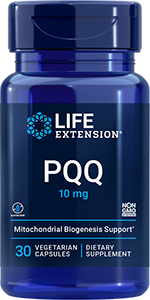Leukemia can be classified into four major types based on whether the disease is acute or chronic and according to the type of white blood cell affected: - Acute myelogenous leukemia (AML)
- Chronic myelogenous leukemia (CML)
- Acute lymphocytic leukemia (ALL)
- Chronic lymphocytic leukemia (CLL)
Myelogenous leukemia involves myeloid cells, granulocytes (neutrophils, basophils, and eosinophils) and monocytes (macrophages). Lymphocytic leukemia involves T and B cells (lymphocytes). Suboptimal levels of micronutrients can cause DNA damage associated with leukemia and limit the ability to repair this damage (Ames BN 1998; Ames BN 1999). Epigallocatechin from green tea, curcumin from turmeric, and genistein from soy extracts have all been shown to block the production of growth factors such as VEGF (Arbiser JL et al 1998; Carlo-Stella C et al 1996b; Lee YK et al 2004) typically seen in high levels in CLL (Ferrajoli A et al 2001). Essential fatty acids have been shown to suppress other inflammatory factors, such as IL-6 and TNF-alpha that are seen in high levels in CLL (De CR et al 2000; Purasiri P et al 1997). | 
Life Extension Multimedia features informative audio and video presentations covering a variety of health related topics. Life Extension’s Dr Michael Smith, MD, presents the latest research findings on health topics that concern many of us, such as heart health and optimal sugar balance, and provides practical suggestions to help you stay in optimal health, including the use of antioxidant vitamins, multi vitamins, fish oil supplements and other health supplements. Additionally, findings regarding hormones such as testosterone that decline with age are presented by Dr Smith in a user-friendly manner. https://www.lifeextension.com/health-basics/podcasts-video-media/ |















